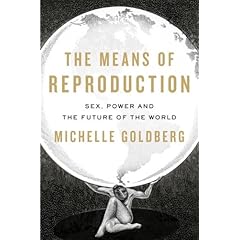 My book, Girl Zines: Making Media, Doing Feminism, has just been released. More about that later, but for now I wanted to let those of you in the NYC area know about an upcoming book event:
My book, Girl Zines: Making Media, Doing Feminism, has just been released. More about that later, but for now I wanted to let those of you in the NYC area know about an upcoming book event:
Girl Zines at Bluestockings
Saturday, Dec. 5, at 7 p.m.
Free!
I’ll do a brief reading from the book, and then fabulous zine creators Ayun Halliday, Victoria Law, Jenna Freedman, and Lauren Jade Martin will read from some of their zines. Someone from BUST will also be there.
Here’s how Bluestockings is advertising the event: The East Village Inky… Mend My Dress… Dear Stepdad… I’m So Fucking Beautiful… In the past two decades, women have produced 1000’s of unique zines which serve as engaged and tangible evidence of the third wave feminism. Join Alison Piepmeier for a reading and discussion of her book “Girl Zines: Making Media, Doing Feminism,†which explores these quirky, personalized booklets and the meaning of being a revolutionary girl.
I would love to see Girl with Pen readers there!

 Just a quick shout out to a number of authors with FANTABULOUS feminist books out this fall. Congrats, admiration, and heartfelt kudos to:
Just a quick shout out to a number of authors with FANTABULOUS feminist books out this fall. Congrats, admiration, and heartfelt kudos to: The one, the only Daphne Uviller (who coedited Only Child with me) had a great piece in yesterday’s City Section of the NYTimes — part of the series “Her Tales of the City”. Daph’s essay is a great lead in to her latest book, a novel called
The one, the only Daphne Uviller (who coedited Only Child with me) had a great piece in yesterday’s City Section of the NYTimes — part of the series “Her Tales of the City”. Daph’s essay is a great lead in to her latest book, a novel called  I’ll be teaching next at Woodhull’s
I’ll be teaching next at Woodhull’s I just hung up the phone with a new author who has a book project that I’m very excited about. I can’t tell you much about her project just yet—I’m trying to keep it on the down low for as long as possible—but I’ll say this: it kicks some serious bottom, and I can’t wait to work with her on it in the next handful of months.
I just hung up the phone with a new author who has a book project that I’m very excited about. I can’t tell you much about her project just yet—I’m trying to keep it on the down low for as long as possible—but I’ll say this: it kicks some serious bottom, and I can’t wait to work with her on it in the next handful of months. Seriously. I kid thee not. In the May 18th issue currently on the stands, two members of my writers group have features!
Seriously. I kid thee not. In the May 18th issue currently on the stands, two members of my writers group have features! Kathryn Joyce is a journalist and author of the new release Quiverfull: Inside the Christian Patriarchy Movement (Beacon Press). A graduate of both Hampshire College and New York University, her freelance writing has appeared in Newsweek, The Nation, Mother Jones, and many other publications. Joyce recently spoke to Girl with Pen about her research experiences, intersectional conflicts within the Quiverfull movement, and the public’s response to her groundbreaking new work:
Kathryn Joyce is a journalist and author of the new release Quiverfull: Inside the Christian Patriarchy Movement (Beacon Press). A graduate of both Hampshire College and New York University, her freelance writing has appeared in Newsweek, The Nation, Mother Jones, and many other publications. Joyce recently spoke to Girl with Pen about her research experiences, intersectional conflicts within the Quiverfull movement, and the public’s response to her groundbreaking new work: We’re pleased to bring you another cross-post from our friends at Feminist Review. In this week’s edition, Sarah Eve Nichols-Fulghum reviews Michelle Goldberg’s The Means of Reproduction. –Kristen
We’re pleased to bring you another cross-post from our friends at Feminist Review. In this week’s edition, Sarah Eve Nichols-Fulghum reviews Michelle Goldberg’s The Means of Reproduction. –Kristen